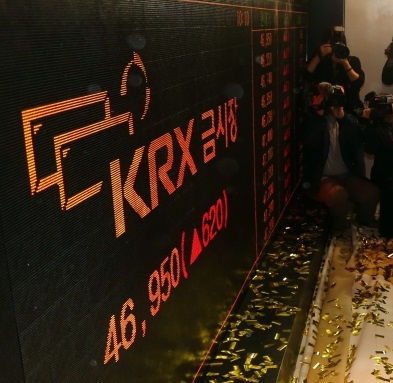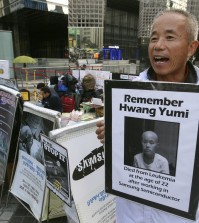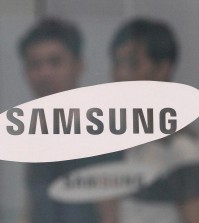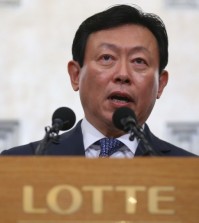- California Assembly OKs highest minimum wage in nation
- S. Korea unveils first graphic cigarette warnings
- US joins with South Korea, Japan in bid to deter North Korea
- LPGA golfer Chun In-gee finally back in action
- S. Korea won’t be top seed in final World Cup qualification round
- US men’s soccer misses 2nd straight Olympics
- US back on track in qualifying with 4-0 win over Guatemala
- High-intensity workout injuries spawn cottage industry
- CDC expands range of Zika mosquitoes into parts of Northeast
- Who knew? ‘The Walking Dead’ is helping families connect
Korea Exchange delisted as public institution
SEJONG (Yonhap) — South Korea’s stock exchange authority was delisted Thursday as a public institution, effectively allowing an alternative trading system (ATS) to sweep in and vitalize the local capital market.
The decision, long waited by the equities market, came at a meeting of the public institution management committee chaired by vice finance minister Bang Moon-kyu. The committee said the Korea Exchange (KRX) met the requirement for the delisting by overhauling its lax management style and slashing excessive welfare benefits given to its workers by over 68 percent.
The KRX’s market capitalization is valued over $1 trillion.
The passage of the revised financial market act in May 2013, which lifted the monopoly control of the stock market by KRX, also enabled the delisting.
Under the revised bill, the government can authorize the opening of an ATS that competes with the KRX on a even footing.
Some policymakers had argued for removing the KRX from the list of public institutions, saying it would spur the bourse operator to carry on its business more freely, boosting its competitiveness at home and even abroad.
Public institutions are subject to regular reviews by the state auditor and are kept under close watch over their management and fund usage. KRX was designated as one back in 2009. The removal was delayed several times as the government pressed it to tighten its management from excessive employee benefits and other spendings.
“To prevent the KRX from reverting back to it lax management style, (the bourse operator) will sign a pact with the Financial Services Commission (FSC) that will be tasked with overseeing all operations,” Bang said.
The chairman of the FSC will, moreover, reach an agreement with the KRX president that will oblige the latter to push forward reforms that can further cut waste and improve efficiency and service of the stock exchange.
KRX will also make public its operations through various management-related listings that can be seen by all interested parties.
Market watchers said removing the KRX from the public institution list can permit the government greater leeway in vitalizing the local capital market.
The KRX, while losing it monopoly status, can now seek to set up overseas operations that can benefit the exchange in the long run and implement measures to improve efficiency.
The removal would also allow the KRX to be listed on the bourse.
“With the delisting, the KRX can now develop a wide range of financial instruments and advanced methods and expand cross-border trades with foreign exchanges,” Chung Kil-won, a researcher at KDB Daewoo Securities, said.
Brokerage houses expect the listing of the bourse operator will boost its market value, which is estimated at about 140,000 won (US$128). Its shares are owned by about 40 local brokerage houses and futures exchanges, with each of their holdings not exceeding the 5 percent limit under current laws.
The shares of the Tokyo Stock Exchange and Osaka Securities Exchange, which merged and went public in January 2013, surged as much as 3.8 times a year later.
“The KRX’s estimated value is about 1.3 times the price-to-book value, which is much lower than foreign exchanges whose average P/B ratio standing at 6.1 times,” Park Sun-ho, a researcher at Meritz Securities, said. “If the KRX goes public, asset value of local brokerage house will go up.”
The P/B ratio is calculated by dividing the stock price by the latest quarter’s book value per share. A lower ratio could mean that the stock is undervalued.
Besides the KRX, five other corporations including Korean Standards Association, Korea Finance Corporation and KDB Financial Group have been removed from the public institution roster, while 20 others such as the newly- created Korea Institute for Food Safety Management Accreditation have been added.
The changes bring the total number of public institutions to 316 this year from 302 last year.
















